Explore web search results related to this domain and discover relevant information.

Short Money is allocated to opposition parties to support them in their parliamentary duties. Allocations are based on a party’s performance at the previous election.
Short Money is funding to support opposition parties in carrying out their parliamentary business. It was introduced in 1975 and is named after Edward Short, then Leader of the House of Commons. It is provided by the House of Commons and recorded in the Electoral Commission’s donation database as public funding.In the 2024 Parliament, eight parties had five or fewer MPs elected at the July 2024 general election. Of the eight parties: three were not entitled to Short Money because they each have one MP and received fewer than 150,000 votes (Alliance Party, Traditional Unionist Voice and the Ulster Unionist Party)Short Money is available to all opposition parties in the House of Commons that secured either two seats, or one seat and at least 150,000 votes, at the previous general election.Each component is uprated annually on 1 April by the percentage increase in the consumer price index in the year to the previous December. Allocations throughout a Parliament are based on the results of the previous general election.
Federal Election Commission | United States of America ... See how candidates and committees raise and spend money in federal elections.
Explore current and historic federal campaign finance data on the new fec.gov. Look at totals and trends, and see how candidates and committees raise and spend money. When you find what you need, export results and save custom links.


“Money and Politics: Ensuring Fair Elections Through Campaign Donation Limits” | “From Wealth to Votes: Addressing the Influence of Money in American Politics” In America today, money plays a …
In America today, money plays a big role in politics. Some people and groups give millions of dollars to help certain candidates win. This gives the rich and powerful a louder voice than regular people. It also makes it harder for honest candidates to run for office if they don’t have wealthy donors behind them. As a result, politicians often end up working for special interest groups instead of the people they were elected to represent.Every person should be allowed to give only one set amount of money to a political campaign. No more, no less. That amount should be the same for everyone, whether they are rich or poor. The goal is to give each voter an equal voice in the political process. This would make elections fairer, because candidates would have to focus on real issues and not on who can raise the most money.By removing big money from politics, we can reduce corruption and make elections more competitive. Candidates would be judged based on their ideas, not on the size of their bank accounts.“Democratizing Donations: How to Give Every Voter an Equal Say in Elections” · Each state already has its own rules for who can vote. We could use these voting systems to help set fair donation rules. For example, registered voters in each state could vote on how much money candidates in their state can raise in total.
In 2020, nearly $14 billion was ... the 2016 election. Critics assert that following a number of Supreme Court decisions — Citizens United v. FEC (2010) in particular—the "very wealthy" are now allowed to spend unlimited amounts on campaigns (through Political Action Committees, especially "Super PACs"), and to prevent voters from knowing who is trying to influence them (contributing "dark money" that masks ...
In 2020, nearly $14 billion was spent on federal election campaigns in the United States — "making it the most expensive campaign in U.S. history", "more than double" what was spent in the 2016 election. Critics assert that following a number of Supreme Court decisions — Citizens United v. FEC (2010) in particular—the "very wealthy" are now allowed to spend unlimited amounts on campaigns (through Political Action Committees, especially "Super PACs"), and to prevent voters from knowing who is trying to influence them (contributing "dark money" that masks the donor's identity).Consequently, as of at least 2022, critics (such as the Brennan Center for Justice) allege "big money dominates U.S. political campaigns to a degree not seen in decades" and is "drowning out the voices of ordinary Americans." On December 6, 2024, The Washington Post reported that Elon Musk had donated $277 million to Trump and allied Republicans, making him the single largest individual political donor in the 2024 election and the largest donor since at least 2010, not counting candidates who funded their own campaigns, according to data from OpenSecrets.Public concern over the influence of large donors in political campaigns was reflected in a 2018 opinion poll which found that 74% of Americans surveyed thought it was "very" important that "people who give a lot of money to elected officials" "not have more political influence than other people", but that 72% thought this was "not at all" or "not too" much the case.Another 65% of respondents agreed that it should not be impossible to change this and that "new laws could be written that would be effective in reducing the role of money in politics". Laws regulating campaign donations, spending and public funding have been enacted at the federal level by the Congress and enforced by the Federal Election Commission (FEC), an independent federal agency.Nonprofit, non-governmental grassroots organizations like the Center for Responsive Politics, Consumer Watchdog and Common Cause track how money is raised and spent. Although most campaign spending is privately financed (largely through donors that work in subsidized industries), public financing is available for qualifying candidates for President of the United States during both the primaries and the general election.
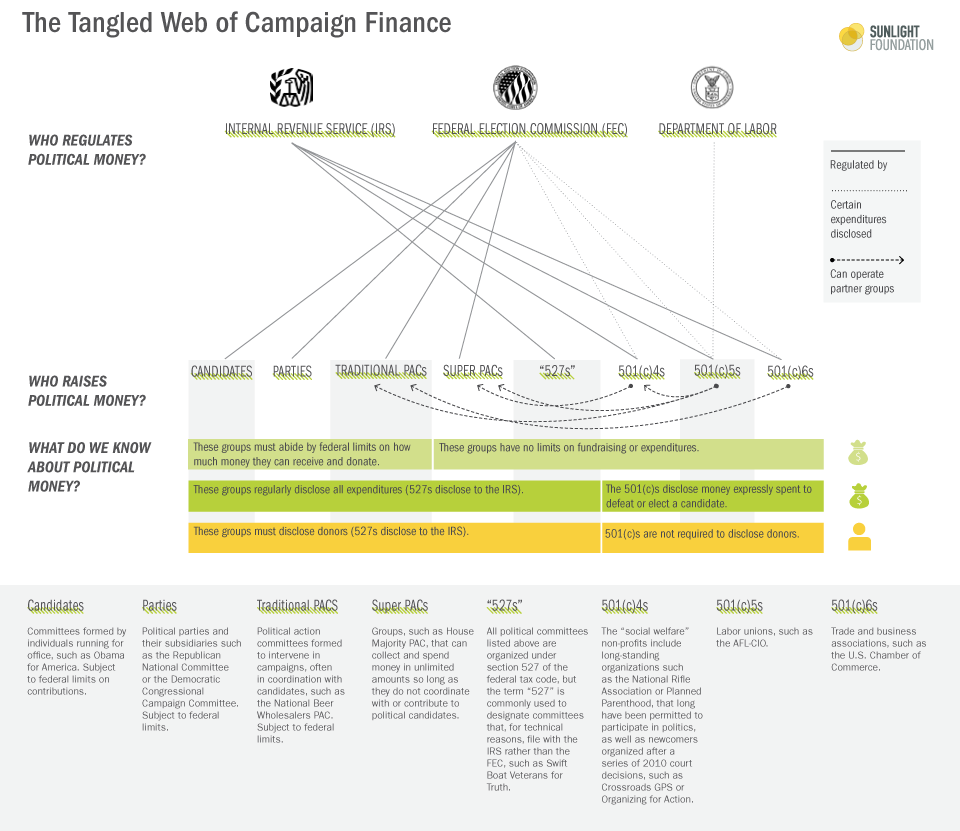
The Federal Election Commission (FEC) enforces the Federal Election Campaign Act of 1971 (FECA). The act limits the amount of money individuals and political organizations can give to a candidate running for federal office.
But they must report the amount they spend to the Federal Election Commission (FEC). Learn what are and are not considered personal funds that a candidate can spend on their campaign. The FECA requires candidates for president, Senate, and the House of Representatives to report: The names of the individuals and political organizations contributing to their campaigns and the amounts · How the candidates spend the money they receive and the amountsOverseeing public funding used in presidential elections ... Search the FEC’s database to find out where each candidate gets campaign money and how they spend it in federal elections.Know the limits of campaign contributions to presidential and congressional candidates. Get the facts about campaign financial reporting rules.

Amounts spent on all federal elections, by cycle. These figures include all money spent by presidential candidates, Senate and House candidates, political parties and independent interest groups trying to influence federal elections
OpenSecrets is the nation’s most trusted, nonpartisan source for following the money in politics — but this work depends on readers like you. Chip in $10 today to help keep transparency alive. ... See which industries and organizations are supporting your elected representatives in the House and Senate.Follow the money to state legislators in all 50 states. ... Discover the industries and organizations that donated to judicial officeholders in the 38 states that elect judges.Track the hundreds of millions of dollars flowing into state and federal elections from 527 political nonprofits. ... Get the full picture of who is lobbying government officials. Search by client, firm, industry, or issue to see who is spending to shape policy. Start your search ... Profiles on current issues and important topics. ... In-depth analyses on money and politics.Here are the amounts spent on all federal elections, by cycle. These figures include all money spent by presidential candidates, Senate and House candidates, political parties and independent interest groups trying to influence federal elections:

Election workers process absentee ballots on Nov. 4, 2024, in Portland, Maine. Maine is forgoing roughly $130,000 in election security grant money because the state does not plan to comply with new requirements from the Trump administration.
The Trump administration has indicated it may withhold tens of millions of dollars in election security funding if states don't comply with its voting policy goals. The money comes from a Department of Homeland Security (DHS) grant program, and voting officials say new requirements from the administration will make the money inaccessible for most of the country.About $28 million — or 3% of the overall Homeland Security Grant Program — is devoted to election security and now at risk, though some officials and experts worry that the new requirements could also endanger hundreds of millions of dollars in other grants for law enforcement. ... Voting officials say the amount of money at risk won't make or break the country's election security.They estimated that only a handful of election offices were working with their state emergency management departments to craft the grant applications in line with the new election requirements and therefore would potentially access that money.One of the requirements, for instance, is that jurisdictions applying for money must "prioritize compliance" with federal guidelines for voting system certification that are so new they have not yet been incorporated anywhere in the country. In a statement provided to NPR after publication, FEMA did not answer NPR's specific questions about the new grant rules, including about how such a provision would be adjudicated considering that no state is currently using election equipment certified to the new standards.


Ossoff lost a special election ... near-toss up nature in the most recent elections has made it a vital state for both parties, with Ossoff raising just under $42 million, which comprises around 25 percent of the total money raised by Senate Democrats....
Ossoff lost a special election for Georgia's 6th Congressional district in 2020 but went on to win a Senate seat later that year. Georgia's near-toss up nature in the most recent elections has made it a vital state for both parties, with Ossoff raising just under $42 million, which comprises around 25 percent of the total money raised by Senate Democrats.The Republicans hold slim majorities in the House of Representatives and Senate, and the RNC has outraised the DNC after Trump's commanding win.Data from the Federal Election Commission (FEC) shows Democrats ahead of Republicans in overall fundraising, with more success among House Democrats than senators, as the parties gear up for a fierce 2026 midterm election.Grassroots campaigns like the 2018 election that saw Representative Alexandria Ocasio-Cortez, a New York Democrat, secure her seat and the 2025 Democratic mayoral primary that saw longshot candidate Zohran Mamdani upset establishment favorite Andrew Cuomo, a former governor of New York, the question remains how valuable fundraising will be as a metric in future elections.
Any amount in excess of $50 must ... unrelated to any federal election, campaign or candidate. In-kind contributions The value of an in-kind contribution—the usual and normal charge—counts against the contribution limit as a gift of money does....
Any amount in excess of $50 must be promptly disposed of and may be used for any lawful purpose unrelated to any federal election, campaign or candidate. In-kind contributions The value of an in-kind contribution—the usual and normal charge—counts against the contribution limit as a gift of money does.The federal contribution limits that apply to contributions made to a federal candidate's campaign for the U.S. House, U.S. Senate or U.S. President. Includes limits that apply to individual donations, as well as to contributions by political action committees (PACs) and party committees to candidates.Under certain circumstances, additional elections may be called that bring about additional per election contribution limits. For example, a separate election may occur when a judicial decision creates a new election. A special election may also involve separate primary, general and/or runoff elections, each with a separate contribution limit.In Advisory Opinion (AO) 2009-15, the Commission concluded that under certain circumstances an authorized committee may accept contributions that may be used in a special or emergency election or runoff, even though an election has not been scheduled and may not occur.

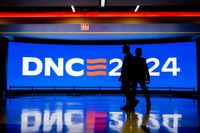
Nearly a year out from the 2026 midterm elections, Democrats are facing a money problem, having only $15 million on hand compared to Republicans, who have $80 million.
Democrats have struggled to entice large donors or individual contributors to give to their national committee after losing the presidency and CongressIt’s a significantly larger gap than the one the two parties had going into the 2022 midterms, when Democrats had $30 million on hand while Republicans had $14 million, or the 2024 presidential election, when Democrats had $22 million and Republicans had $38 million.However, not all hope is lost for the DNC. The committee similarly struggled to out raise or even catch up with the RNC leading up to the 2020 presidential election, which former president Joe Biden ultimately won.Federal Election Commission filings, submitted by the DNC and Republican National Committee at the end of June, show that the two parties have a $65 million gap.
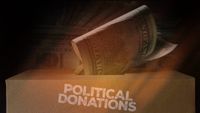
Nearly three-fourths of Arizona voters approved a law to end 'dark money' in politics. Here's what we found in the first election it was in place.
The cost of running a political campaign has skyrocketed. Where do campaigns get the money to operate? Let's examine contributions and "dark money." ... Nearly three-fourths of Arizona voters approved a ballot measure called the "Voters Right to Know Act" in the 2022 election.But in the first election where the disclosure law was in place, 40% of campaigns listed no donors at all, according to a review by The Arizona Republic. More often, the reports showed groups funneling tens or hundreds of thousands of dollars to other groups, without reporting where the money originated.Two groups, Opportunity Arizona and Stand for Children, reported six- and seven-figure donations from in-state and out-of-state groups, but did not identify the individuals behind the money, for example. Opportunity Arizona helped Democrats running for statewide office. Stand for Children helped a bipartisan slate of candidates. The right-wing Make Liberty Win Again group was accused of failing to report any donations at all, which the group denied. All the groups were the subject of complaints, but they were cleared by the Arizona Citizens Clean Elections Commission, the state body tasked with enforcing the law.Multiple disclosure reports during the 2024 election cycle showed big spending but no original donors, prompting complaints to the Clean Elections Commission. Stand for Children, an Oregon-based nonprofit corporation, funneled $1.5 million to its Arizona branch to support Republicans and Democrats running for the state Legislature and school boards, but the group disclosed zero original donors. After a complaint was filed with the Commission, attorneys for Stand for Children said the group didn't need to disclose donors because they contributed the money in 2018, before the law took effect, and couldn't be found.
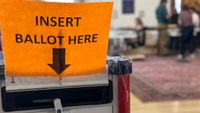
Election workers process absentee ballots on Nov. 4, 2024, in Portland, Maine. Maine is forgoing roughly $130,000 in election security grant money because the state does not plan to comply with new requirements from the Trump administration.
The Trump administration has indicated it may withhold tens of millions of dollars in election security funding if states don't comply with its voting policy goals. The money comes from a Department of Homeland Security (DHS) grant program, and voting officials say new requirements from the administration will make the money inaccessible for most of the country.About $28 million — or 3% of the overall Homeland Security Grant Program — is devoted to election security and now at risk, though some officials and experts worry that the new requirements could also endanger hundreds of millions of dollars in other grants for law enforcement. ... Voting officials say the amount of money at risk won't make or break the country's election security.They estimated that only a handful of election offices were working with their state emergency management departments to craft the grant applications in line with the new election requirements and therefore would potentially access that money.One of the requirements, for instance, is that jurisdictions applying for money must "prioritize compliance" with federal guidelines for voting system certification that are so new they have not yet been incorporated anywhere in the country. In a statement provided to NPR after publication, FEMA did not answer NPR's specific questions about the new grant rules, including about how such a provision would be adjudicated considering that no state is currently using election equipment certified to the new standards.
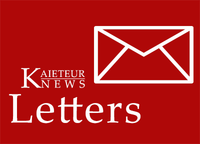
In the aftermath of the General and Regional Elections, a widely held view that persists to this day is that money played a major, if not a defining role particularly in respect to the mobilisation of WIN supporters.
Because there is no legislation to treat effectively with campaign financing as an offence, there is no legal prohibition or enforcement mechanism to limit the use of money in any shape or form to advance a political party’s electoral objectives.At the same time, what the flow of money did was to create a yearning by many to climb out of poverty, to bring relief from the cost-of-living, improvements in the home, a dinner or lunch at a restaurant and being able to spend quality time with family even a holiday. Promises made by the PPP/C during the election campaign, when realised, will undoubtedly see more gushes of money in circulation.In our midst, there are those who love money, want money or crave for more, not just the crisp thousand- or five-thousand-dollar notes but even the crinkled old ones passed around from hand to hand every day and everywhere. So advanced has the means of exchange become that electric money can be sent via a text message to a smart phone and a deposit of say over five thousand and more can be made.There’s no limit to what money can do for say, a sleazy politician seeking a position of power. Recent elections experience in Guyana has shown convincingly that people wittingly or unwittingly fall into the money trap irrespective of who gives it and for what purpose so long as it can buy what is badly needed for the home or a vote for a party campaigning to win government or seats in parliament.
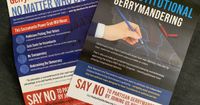
Over $17 million has already been raised to support and oppose Prop. 50, California’s congressional redistricting measure. We fill you in on how to track the money ahead of the special election on Nov. 4.
The ad wants voters to vote “no” and describes the redistricting effort as a “threat to California’s landmark election reform.” · But perhaps you’d like to know more. Who are these affiliated groups, Protect Voters First and Hold Politicians Accountable? How much money have they raised?What’s a political committee? In an election, all political ad spending has to come from a committee. A political committee is any group of people (it can even be just one individual) who wants to raise or spend money to support or oppose a candidate or ballot measure.How they work: Some committees stick around for a long time, putting money behind various measures year after year. One example is the Protect Prop. 13 committee — a project from the Howard Jarvis Taxpayers Association, an anti-tax group that has been around for decades. For the most part, committees are ephemeral: They come together for one specific purpose in an election, then disappear.He’s not the only one spending money against the redistricting measure, but so far he’s got a $10 million head start. You can use this process to check out any of the groups supporting or opposing Prop. 50. Remember, read the fine print on your mailer and look out for the “ad paid for by section. Things are moving fast with this short election cycle, so the bigger campaign fundraising landscape is still emerging into view.
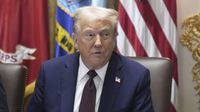
President Trump said he raised $1.5 billion since he was elected in November, hitting a milestone in contributions even as he is constitutionally prohibited from seeking another term.
President Trump said he raised $1.5 billion since he was elected in November, hitting a milestone in contributions. “I am pleased to report that I have raised, since the Great Presidential Election…Trump and some of his allies have repeatedly floated the idea of seeking a third term. At times, those comments have been dismissed as a joke, though he has at other points appeared more serious about the idea despite the 22nd Amendment prohibiting an individual from being elected to more than two terms.Tags 2028 presidential election Donald Trump JD Vance MAGA Inc.“I am pleased to report that I have raised, since the Great Presidential Election of 2024, in various forms and political entities, in excess of 1.5 Billion Dollars.
OpenSecrets is the nation's premier research and government transparency group tracking money in politics and its effect on elections and policy.
OpenSecrets is the nation’s most trusted, nonpartisan source for following the money in politics — but this work depends on readers like you. Chip in $10 today to help keep transparency alive. ... See which industries and organizations are supporting your elected representatives in the House and Senate.Follow the money to state legislators in all 50 states. ... Discover the industries and organizations that donated to judicial officeholders in the 38 states that elect judges.Track the hundreds of millions of dollars flowing into state and federal elections from 527 political nonprofits. ... Get the full picture of who is lobbying government officials. Search by client, firm, industry, or issue to see who is spending to shape policy. Start your search ... Profiles on current issues and important topics. ... In-depth analyses on money and politics.Explore frequently asked questions to learn more about how OpenSecrets tracks political funding, gathers data, how money influences elections and policy, and how to use our tools. If you’re looking for more details on how to navigate the site, this is the place to start.

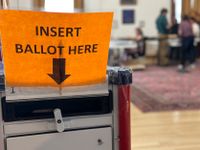
Election workers process absentee ballots on Nov. 4, 2024, in Portland, Maine. Maine is forgoing roughly $130,000 in election security grant money because the state does not plan to comply with new requirements from the Trump administration.
The Trump administration has indicated it may withhold tens of millions of dollars in election security funding if states don't comply with its voting policy goals. The money comes from a Department of Homeland Security (DHS) grant program, and voting officials say new requirements from the administration will make the money inaccessible for most of the country.About $28 million — or 3% of the overall Homeland Security Grant Program — is devoted to election security and now at risk, though some officials and experts worry that the new requirements could also endanger hundreds of millions of dollars in other grants for law enforcement. Voting officials say the amount of money at risk won't make or break the country's election security.They estimated that only a handful of election offices were working with their state emergency management departments to craft the grant applications in line with the new election requirements and therefore would potentially access that money.One of the requirements, for instance, is that jurisdictions applying for money must "prioritize compliance" with federal guidelines for voting system certification that are so new they have not yet been incorporated anywhere in the country. FEMA, which manages the grants, did not respond to NPR's questions about the new grant rules, including about how such a provision would be adjudicated considering that no state is currently using election equipment certified to the new standards.
How the Federal Election Commission administers the laws regarding the public funding of presidential elections, including the primary matching funds process for eligible candidates for President, the general election grants to nominees, and mandatory audits of public funding recipients.
Under the presidential public funding program, eligible presidential candidates receive federal government funds to pay for the qualified expenses of their political campaigns in both the primary and general elections.Even if they no longer campaign actively in primary elections, candidates may continue to request public funds to pay off campaign debts until the first Monday of March of the year following an election. However, to qualify for matching funds, contributions must be deposited in the campaign account by December 31 of the election year.Public funding for major party presidential nominees in the general election takes the form of a grant of $20 million plus the difference in the price index. To be eligible to receive public funds, the presidential nominee of a major party must agree to limit spending to the amount of the grant and may not accept private contributions for the campaign.Candidates may spend an additional $50,000 from their own personal funds, which does not count against the expenditure limit. In 1976, each major party nominee received $21.8 million. By 2008 (the last year a major party candidate chose to accept a general election grant), that amount had grown to $84.1 million.

Between January 2023 and April 2024, US political campaigns collected around $8.6 billion for the 2024 House, Senate, and presidential elections. Over 65% of that money, about $5.6 billion, came from political action committees (PACs).
Provide financial support to the general election campaigns of major party nominees and help qualifying minor party nominees. The money for this program comes from federal income tax: the 1040 tax form asks taxpayers whether they’d like to designate $3 of their taxes for the Presidential Election Campaign Fund.The way a PAC collects and spends money depends on how the organization is structured (i.e. the difference between a traditional, hybrid, and super PACs). Traditional PACs are subject to both donation and spending limits. They can contribute up to $5,000 per election to a candidate, $5,000 annually to other PACs, and $15,000 to national party committees each year.Most of the money spent so far has come from PACs – nearly $2.2 billion, or 56.5% of total expenditures as of April 2024 – which can fund political advertisements, ballot initiatives, and other activities that advocate on behalf of a candidate or political party. Candidates spent roughly $1.1 billion directly, while party committees laid out the remaining $545.8 million. During the run-up to the 2020 elections, campaign spending reached $4.8 billion between January 2019 and April 2020, $5.7 billion when adjusted for inflation.By the end of the election cycle, expenditures topped $15.4 billion, or $18.2 billion inflation-adjusted. Subscribe to our weekly newsletter to get data-backed answers to today’s most debated issues · The FEC enforces restrictions on money spent on political campaigns, covering a wide range of activities.
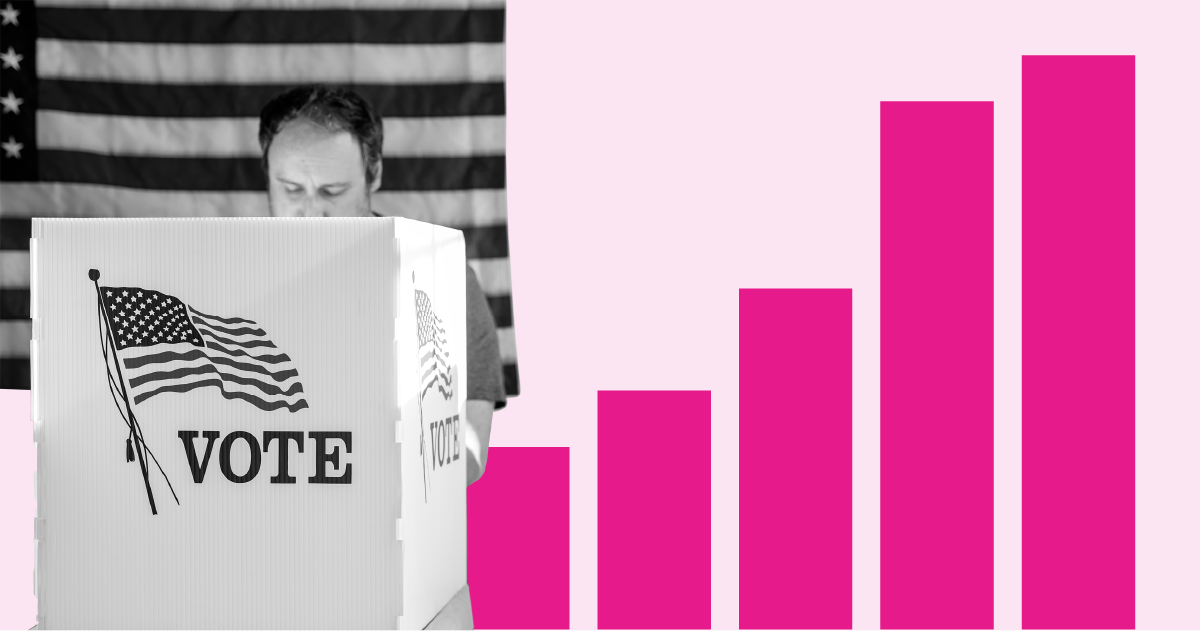
The National Institute on Money in Politics and the Center for Responsive Politics joined forces to become OpenSecrets. This website displays state campaign finance data that is current through the 2024 election year. While the data is current, the site isn't maintained as we integrate with ...
The National Institute on Money in Politics and the Center for Responsive Politics joined forces to become OpenSecrets. This website displays state campaign finance data that is current through the 2024 election year. While the data is current, the site isn't maintained as we integrate with OpenSecrets and you may find bugs.See comprehensive 50-state campaign contributions, independent spending, and lobbying details for candidates, political parties and ballot measures at FollowTheMoney.org.








